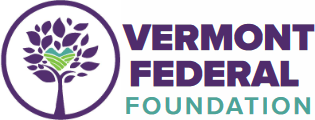Online dating has made it easier than ever to meet someone new, and plenty of couples have found real connections on the internet. But alongside the happy stories, there’s a growing risk that’s important to know about: romance scams. In 2023 alone, Americans lost over $1.14 billion to these schemes, more than any other type of imposter fraud, according to the FTC. And because many cases go unreported, that number is likely just the tip of the iceberg.
Be aware that these scams aren’t limited to dating apps. Social media sites like Facebook and Instagram have become common places for romance scammers to reach their victims. In fact, 40% of people who were scammed said the fraudulent relationship began on one of these platforms.
How Romance Scams Work
Unlike many scams that seek quick payouts, romance scammers play the long game. They invest weeks or even months building trust, often mirroring your interests, experiences, or struggles to create a false sense of connection. Lost a spouse? So have they. Struggling with health? They have advice. It’s all part of the act.
After earning your trust, scammers reveal their true intentions. They might ask for money, push suspicious investment opportunities, or even involve you in illegal activities, such as transferring funds for others without your knowledge.
Here Are Some Red Flags to Watch For
- Receiving “wrong number” texts that quickly turn into a conversation
- Quickly moving off dating platforms to private messaging apps
- Living far away or always having an excuse to avoid meeting in person
- Love bombing with excessive affection or constant grand promises early on
- Requests for money related to medical bills, legal troubles, or business problems
- Crypto or investment pitches from someone you’ve never met
Protecting yourself from love scams
Protecting yourself from love scams starts with safeguarding your personal information online. Always be mindful of what you share on dating sites and social media. Details like your full name, address, financial situation, or family circumstances can be used by scammers to build trust or exploit your vulnerabilities.
- Don’t overshare online, especially on dating and social media sites
- Use tech tools. Spam filters, strict privacy settings, and call blockers can help
- Talk to someone you trust. Friends or family can offer a valuable perspective
- Do your homework. Reverse image searches and background checks can reveal fakes.
- Avoid investing money based solely on online relationships
- Cut off contact immediately if you suspect a scam and report it
Report and Get Help
If you think you’ve been targeted, take immediate action to protect yourself and others. Here are some actions you can take to report fraudulent activity.
- Report the scam and scammer to the platform where it started.
- Contact local law enforcement and your state attorney general.
- File a report with the FTC or the FBI’s Internet Crime Complaint Center (IC3.gov).
- Call the AARP Fraud Watch Network Helpline at 877-908-3360 for support and guidance.








